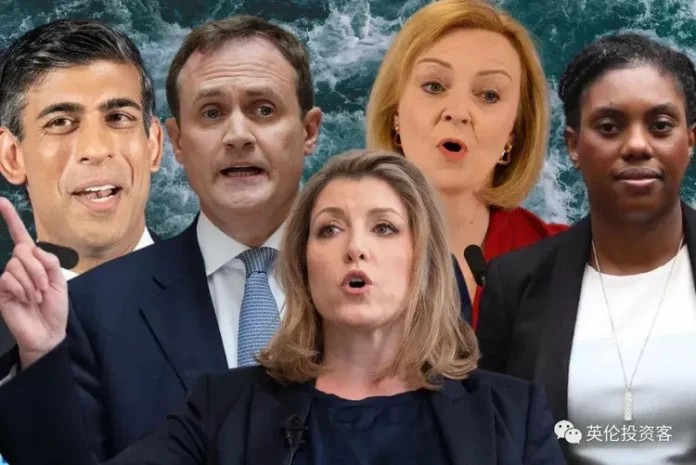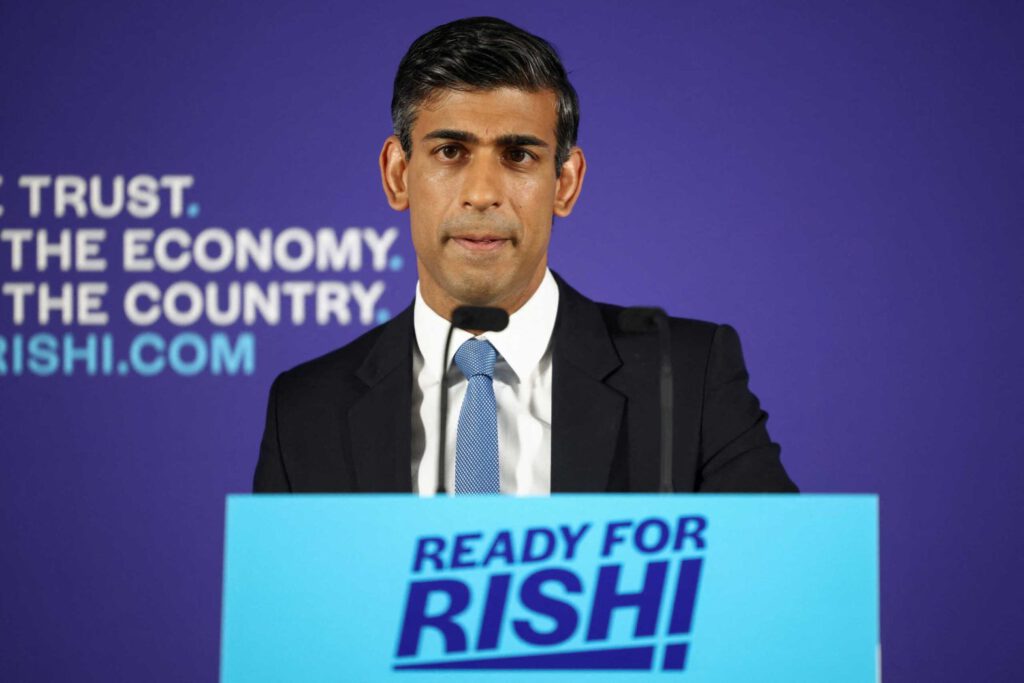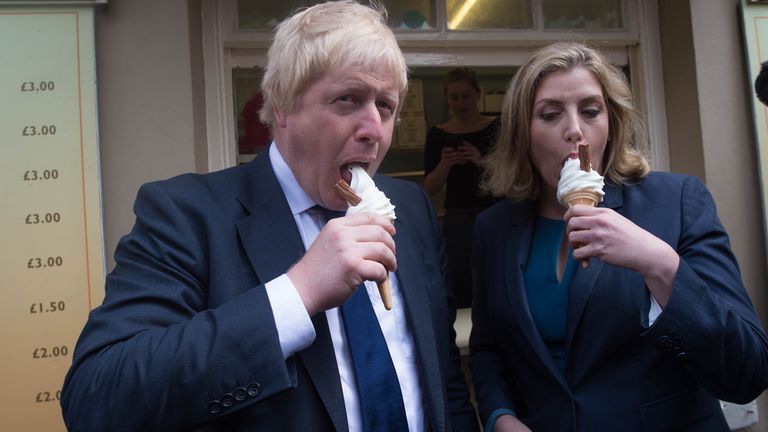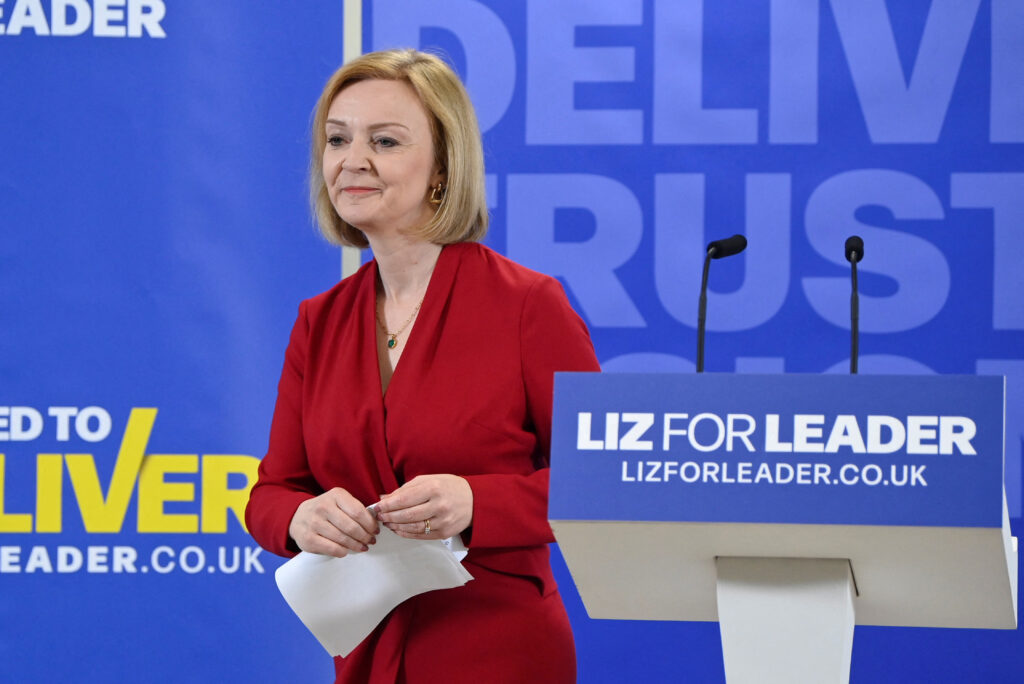
After the second round of voting, the number of candidates vying to become the head of the British Conservative Party has shrunk from eight to five. Since the Conservative Party is still the ruling party in Britain, the new head of the party will automatically become the British Prime Minister, succeeding Boris Johnson, who was forced to announce his resignation on July 7.
The five candidates will have to go through a “five-in-two” elimination process, after which the Conservative Party will choose the final winner by a second vote of about 160,000 party members. The final results are expected to be announced on 5 September.
Plurality of candidates
The candidates in the race for the head of the British Conservative Party are quite diverse. Of the eight candidates, four are women, four are of minority ethnic origin, and four have studied at Oxford or Cambridge universities, which is often considered a prerequisite for becoming a British prime minister.
What this very diverse field of candidates for the Conservative Party leadership reflects is that the diversity of British society is spilling over into the political arena. The Conservative Party is traditionally large in the UK and is also considered to be a male, white, elite-controlled party. In 2005, then-Conservative leader David Cameron proposed to change the face of the Conservative Party, calling for the election of more women, ethnic minorities, and handicapped MPs to attract support from minority voters.
It is interesting to note that the race for the British prime minister has gained widespread attention in India, with some Indian mainstream media covering the issue from all angles. One of the major reasons for the high level of interest in India is that two of the initial eight candidates are of Indian origin.
Who has more possibility to become the new prime minister?
On July 13 and 14, two rounds of voting were held among Conservative MPs. The first round of voting eliminated two candidates with less than 30 votes – Iraqi-born Chancellor of the Exchequer Nadhim Zahwi and former Foreign Secretary Jeremy Hunt.
The second round of voting eliminated Attorney General Suella Braverman, who was at the bottom of the support vote. According to the BBC, Braverman announced support for Liz Truss after elimination.
At present, in addition to the top three ranking Sunak, Mordaunt, and Truss, the fourth-ranking former Parliamentary Secretary and African-American MP Kemi Badenoch and the chairman of the Foreign Affairs Committee Tom Tugendhat, who is at the bottom, have not shown their willingness to quit the competition, so the situation of five people competing for each other will continue until next week.
Rishi Sunak, 42, was born in Southampton, England, to immigrant parents of Indian descent. He was elected to the British House of Commons in 2014 and became Chancellor of the Exchequer in the Johnson administration in 2020. Reuters said Sunak was one of the key figures who forced Johnson to announce his resignation.

Sunak has a higher recognition among Conservative MPs because he is a more pragmatic person, and as a former Chancellor of the Exchequer, many Conservative MPs believe he will be more experienced in dealing with the current inflation crisis and cost of living crisis in the UK.
If Sunak succeeds in getting elected, he will become the first non-white prime minister in British history. Sunak has the best overall conditions among several candidates, and he will make it to the runoff without any surprise. But going into the runoff, Sunak’s advantage is lost. Instead, this characteristic of his being of Indian origin may cause many traditional Conservative Party members to resist him. Although the Conservative Party is also gradually diversifying, there are still many older and veteran party members who prefer to choose a traditional white elite as the head of the party.
Looking at the polls, Conservative Party members also seem to prefer the second-ranked Penny Mordaunt. A poll by British pollster YouGov of Conservative Party members showed that 27 percent of Conservative Party members preferred Mordaunt as party leader, with Sunak and Truss both receiving 13 percent support. The poll also showed that Mordaunt could win any time she enters a two-person showdown. She has 67 percent and 28 percent support against Sunak and 55 percent and 37 percent support against Truss, respectively.

According to the BBC, the 49-year-old Mordaunt is a staunch Brexiteer and has a high approval rating within the Conservative Party. However, in contrast, her public popularity is low, and many people criticize her for not having a clear policy direction.
Liz Truss, 46, is the second female foreign secretary in British history. Truss did not choose to resign during the recent wave of government resignations, but instead said she was “loyal” to Johnson, which was criticized by some people. But she has also gained the support of Johnson’s fans.

The same dilemma
After two rounds of voting, the remaining five candidates will participate in several rounds of TV debates to elaborate their respective ideas. The core issues of the TV debates will be economic issues, namely whether to cut taxes, how to deal with the current inflation crisis, and the cost of living crisis.
The UK is the country with the highest inflation rate among the G7 countries. According to British media reports, in the face of the worsening cost of living crisis, some Conservative Party chief candidates have made tax cuts their core campaign policy, promising to lower the tax rate for individuals, businesses, or both. But some analysts point out that tax cuts could force a reduction in public spending, widen the gap between rich and poor, and also cause inflation to continue to soar in the UK.
Sunak said he would prioritize fighting inflation over tax cuts. Mordaunt promised to cut VAT on fuel and raise income tax rates for low- and middle-income people. Truss said she would cut taxes immediately after taking office while stimulating economic development.
No matter who comes to power, the challenges facing the new prime minister are the same challenges that Johnson is currently facing, and it will be difficult to solve them in the short term with a different prime minister.
The priorities of the new prime minister will not necessarily have much to do with the tax cut promises they are making now. The new prime minister needs to firstly avoid the British economy falling into recession and secondly, very importantly, to win back the public’s confidence in the Conservative Party and re-establish an image of honesty and integrity.
(Source: BBC, Reuters, Hellas Posts English)



